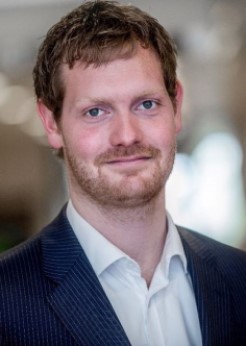PhD Defence Thijs Geradts

In his dissertation ‘Moving Beyond the Why and What Question: How Corporations Achieve Sustainable Development’ Thijs Geradts explored the role of sustainable intrapreneurs, senior managers, and organization design in effectuating a corporate transition toward sustainability. Besides highlighting the important role sustainable intrapreneurs play for corporations to achieve sustainable development, we proposed that sustainable intrapreneurs distinctly advance innovation, alter resource allocation, and manage uncertainty when advancing entrepreneurial solutions to social and/or environmental problems compared to entrepreneurial actors in other contexts. Thijs has defended his dissertation on Thursday, 17 June at 15:30h. His supervisors were Prof. Justin Jansen (RSM), Prof. Joep Cornelissen (RSM) and Prof. André Nijhof (Nyenrode Business University). The members of the Doctoral Committee were Prof. Tom Lumpkin (The University of Oklahoma), Prof. Jonaton Pinkse (The University of Manchester) and Prof. Vareska Van de Vrande (RSM).
About Thijs Geradts

Thijs Hendrik Johan Geradts was born in Sittard, the Netherlands. He holds a bachelor’s degree in Liberal Arts and Sciences from University College Maastricht and two master degrees in the fields of International Business and Applied Cognitive Psychology from Maastricht University, the Netherlands. After his graduation, he joined the department of Organization, Strategy and Entrepreneurship at the School of Business and Economics-Maastricht University as a junior lecturer, and Nyenrode Business Universiteit as a PhD researcher. Following his transition one year after graduation to the department of Strategic Management and Entrepreneurship at the Rotterdam School of Management, Thijs continued his work as a lecturer in entrepreneurship and PhD research on how large multinationals corporations develop new sustainable ventures internally. As part of his research he spent four months as a visiting fellow at the Harvard Graduate School of Arts and Sciences, the Harvard Kennedy School, and the Cambridge Judge Business School.
Thijs’ research interests cover sustainable intrapreneurship, the role of mid- and senior managers in sustainable product development, and the importance of organization design for business sustainability. His research was presented at several scientific conferences, including the Academy of Management Annual Meeting, European Group of Organization Studies Colloquium, and Strategic Management Society Annual Conference. Three of his studies are published in Long Range Planning, MIT Sloan Management Review and Harvard Business Review. In his work as a lecturer, Thijs has been coordinating and teaching a variety of sustainable entrepreneurship, entrepreneurship and management courses to executive, master, and bachelor students. He currently works as Assistant Professor in the Organization, Strategy, and Entrepreneurship department at the School of Business and Economics, Maastricht University.
Thesis Abstract

In today’s world sustainable development is considered to be an important driver for a corporation’s competitive advantage. Pursuing sustainable development provides corporations with a source of innovation, creates opportunities to improve their standing among a broad range of stakeholders, and allows them to strengthen their organizational resilience. While scholars have focused a lot on reasons why corporations would pursue sustainable development and what they could do to effectively deliver on their ambition to achieve sustainability, much remains unknown about the “how to” of sustainable development. To address this gap, this dissertation explores the role of sustainable intrapreneurs, senior managers, and organization design in effectuating a corporate transition toward sustainability. Besides highlighting the important role sustainable intrapreneurs play for corporations to achieve sustainable development, we propose that sustainable intrapreneurs distinctly advance innovation, alter resource allocation, and manage uncertainty when advancing entrepreneurial solutions to social and/or environmental problems compared to entrepreneurial actors in other contexts. We find that entrepreneurial employees may leverage emotions for such purpose. Critically, we also find that senior managers and organization design play an important in role synchronizing a firm’s desire for more focus on long-term economic, social, and environmental value with manager’s perspectives regarding the future (temporal orientations) and rules that shape the form and rhythm of work practices (temporal structures).


